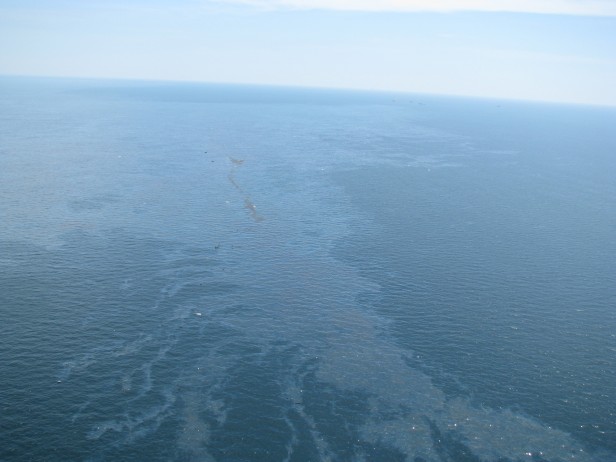The EPA is warning that Gulf Coast residents are at risk of headaches, nausea, and other ill health effects; the culprit is air pollution from the oil burns that response teams are conducting to try to keep the big slick away from coastlines.
“The BP Oil Spill in the Gulf could cause an odor similar to that of a gas station for communities along the affected coast,” warns the site the EPA set up on the disaster:
Is the odor bad for my health?
This odor may cause symptoms such as headaches or nausea. For your own comfort, limit your exposure to the odor by staying indoors. To the extent possible, close windows and doors, turn your air conditioner on and set to a recirculation mode. If you are experiencing severe incidents of nausea or other medical issues, please seek care as soon as possible.
Likewise, the Mississippi State Department of Health advises staying indoors, ventilating with air conditioning, and avoiding strenuous activity. (Hope you don’t have to go to work or school or anything.)
Pregnant women and people with respiratory diseases are at special risk, according to Gina Solomon, senior scientist at the Natural Resources Defense Council. She explains how oil vapor moves:
Oil is semi-volatile, which means that it can evaporate into the air and create a heavy vapor that stays near the ground — in the human breathing zone. When winds whip up oily sea water, the spray contains tiny droplets — basically a fume — of oil, which are small enough to be inhaled deep into the lungs. We know that’s happening in the Gulf Coast, because people are reporting a heavy oily smell in the air. Already my colleagues in Louisiana are reporting that people in the coastal community of Venice, Louisiana are suffering from nausea, vomiting, headaches, and difficulty breathing. [Emphasis mine, here and below.]
Under most conditions, the vapors will probably be largely dispersed by sea breezes by the time they reach shore, according to Jonathan Ward, an environmental toxicology professor at the University of Texas-Galveston. But in New Orleans, the odor was strong last Thursday.
Solomon is particularly concerned about front-line responders:
I’m also worried about the clean-up workers. BP has hired local fishermen to help with the clean-up effort. It’s great to provide employment and to involve them in the effort to save the Gulf Coast, but I’m worried. The fishermen have not been fully trained on how to work safely with hazardous materials. Worse still, reports from our Gulf Coast partners indicate that they may not be getting adequate protective equipment. The cleanup workers need respirators with vapor cartridges (and need to be checked for adequate fit). They need heavy impermeable gloves, and protection on their arms. Remember, these chemicals can damage the skin and even be absorbed through the skin. This clean-up needs to be done quickly, but it also needs to be done safely. Eleven workers are already dead from the explosion; let’s make sure worker and community health is protected from now on.
In other news, a massive air spill was reported at a major offshore wind farm today, with residents noticing an “unseasonably strong breeze.”



